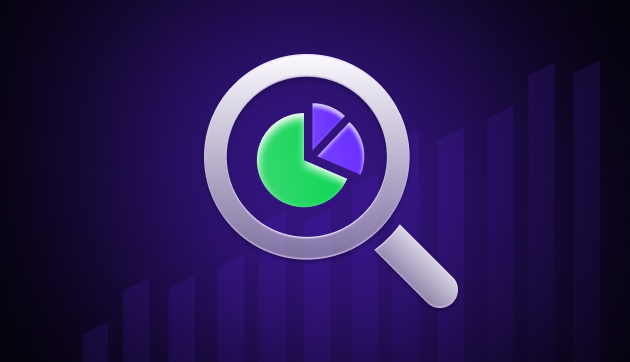
How Businesses Benefit from Using Analytics on Their Website?
Mar 19, 2025 3 Min Read 5478 Views
(Last Updated)
A business’s success these days depends on its online presence. Whether it’s a multinational corporation or a small startup, understanding how visitors interact with a website delivers insights vital to driving growth and improvement.
This is achieved through web analytics – a powerful tool for businesses to enhance their digital strategies and remain competitive. And just how businesses benefit from using analytics on their website?
They collect, measure, analyze, and report website data to understand and optimize their website usage.
Doing so gives them a better understanding of their customers’ behavior, preferences, and trends, allowing them to make informed decisions, anticipate customer needs, and adapt quickly. Let’s learn about business analytics on a website in depth.
Table of contents
- What is Business Analytics on a Website?
- How Businesses Benefit from Using Analytics on Their Website
- Enhanced Understanding of Customer Behavior
- Optimization of Marketing Strategies
- Improved User Experience and Interface
- Harnessing the Power of Analytics with GUVI's Business Analytics Career Program
- Frequently Asked Questions
- How does business analytics differ from web analytics?
- What types of data are crucial for effective website analytics?
- How often should a business analyze its website data?
- Are there privacy concerns with collecting data through business analytics?
- How can a non-technical person learn to use business analytics effectively?
What is Business Analytics on a Website?

Business analytics on a website is the backbone for understanding and enhancing its digital footprint. It refers to the comprehensive process of using data methodologies and tools to analyze and interpret the behavior of visitors on a website.
This includes everything from how users arrive at a website to their actions and what decisions lead them to convert—or leave.
By aggregating data from various website interactions, web analytics helps businesses create a detailed picture of their audience and optimize their marketing efforts, resulting in improved operational efficiency.
The insights they acquire enable better decision-making and develop informed strategies that greatly boost their website performance and user engagement.
Here are a few ways in which business analytics impacts a website:
- Data collection: Gathers quantitative and qualitative data from a website, providing a clear view of user activity.
- Data analysis: Breaks the data into actionable insights, identifying patterns and trends in user behavior.
- Decision making: Utilizes the analyzed data to formulate strategic decisions to enhance user experience and maximize conversions.
Also read: Business Analytics vs Data Analytics
How Businesses Benefit from Using Analytics on Their Website
The use and knowledge of website analytics are necessary to improve operational efficiency and enjoy a robust online presence. Here are three key areas where website analytics can significantly contribute to a business’s success:
Enhanced Understanding of Customer Behavior

Businesses gain deep insights into how users interact with their websites by analyzing the data collected through their websites.
This understanding goes beyond just numbers. They get a proper narrative about their customers’ journeys through their website. For example, analytics can show them which products are most attractive to their customers, which promotions draw the most attention, and what content keeps their users engaged the longest.
This deep dive into their customer behavior allows them to customize their offerings and interface better to meet the needs and preferences of their audience, potentially increasing customer satisfaction and loyalty.
Know More About What is User Experience (UX)? : A Complete Guide [2024]
Optimization of Marketing Strategies

By understanding where their website traffic comes from, which marketing campaigns are most effective, or what messages resonate with their audience, they can allocate their resources more efficiently and boost their return on investment (ROI).
Data-driven insights allow them to focus on the most profitable channels and fine-tune their campaigns in real time, ensuring their marketing budget is spent on tactics that convert interest into sales.
Also Read: 6 Reasons Business Analytics Makes Digital Marketing Powerful
Improved User Experience and Interface

Website analytics also plays a critical role in enhancing a website’s user experience (UX) and user interface (UI). Businesses make targeted improvements that significantly improve the user journey by identifying pages with high bounce rates or where users typically abandon their shopping carts.
Improving the UX and UI based on analytics leads to higher engagement, increased time-on-site, and better conversion rates, all of which are important for the success of an online business.
Also explore: Applications of Business Analytics
Harnessing the Power of Analytics with GUVI’s Business Analytics Career Program
As data continues to drive decisions, knowledge of business analytics is essential. GUVI’s Business Analytics & Digital Marketing Career Program is an excellent resource for professionals and entrepreneurs like you who want to leverage analytics in their business strategy or level up their game as marketers.
Here’s how our program prepares you to make the most of website analytics:
- Led by industry experts: The program is guided by seasoned professionals who help you bridge the gap between theoretical concepts and real-world applications. You’ll undergo a robust curriculum that enhances your ability to make informed decisions and optimize a website’s performance.
- Hands-on experience with top analytical tools: Dive into the practical use of popular tools like Google Analytics and PowerBI. This hands-on approach lets you gather, analyze, and leverage data to drive decisions and actions.
- Real projects, real impact: Work on actual case studies and projects that mirror the challenges you’ll face in the field. This direct application lets you learn to enhance website user experiences, boost conversions, and fuel business growth.
- Rich learning environment and support: Enjoy live classes and lifetime access to recorded sessions backed by expert mentorship. Also, choose to learn in both English and Tamil and receive a globally recognized certificate upon completion, which is excellent for making significant strides in your professional career in business analytics.
Also Explore: Top 9 Business Analytics Skills You Should Know
If you’re interested in enhancing your marketing research techniques before going in for analytics, then consider enrolling in GUVI’s self-paced course and start turning your research into a successful data-driven business model.
Frequently Asked Questions
Business analytics covers overall data, including market trends and operations, to guide strategic business decisions. Web analytics focuses on specific website metrics like traffic sources and user behavior.
Important data for website analytics include user demographics, session duration, page views, bounce rates, conversion rates, and navigation paths.
Businesses should regularly analyze website data. This can be done every month to track trends and adjust strategies or weekly to track active campaigns.
Businesses must adhere to data protection laws like DPDP, GDPR, and CCPA, ensuring ethical data collection, security, and transparency with explicit user consent mechanisms.
Non-technical individuals can learn business analytics through courses like GUVI’s Business Analytics Career Program, which offers practical training and real-world applications.































Did you enjoy this article?